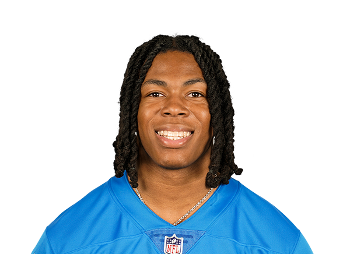DETROIT: In the second quarter of their divisional round matchup with the Tampa Bay Bucs, the Detroit Lions became the first team in the end zone when quarterback Jared Goff connected with wide receiver Josh Reynolds for a 9-yard score.
With 12:33 left in the first half, Goff found Reynolds for a short pass in the back of the end zone, giving Detroit a 10-3 lead.
Reynolds’ first-ever postseason touchdown occurred. During the Lions’ 14-play scoring drive, Goff completed 9 of 10 passes for 60 yards and the touchdown.
Then, at 3:48 of the third quarter, running back Craig Reynolds gave the Lions a 17-10 lead with a score from the goal line on his first rush since October 30.
The Lions’ second touchdown on fourth down this postseason was scored by Reynolds, who was scoring his first-ever playoff touchdown. According to ESPN Stats & Information, the Lions ran for it on fourth down 34% of the time during the regular season, which was the greatest percentage of any team this century.
A few minutes later, Jahmyr Gibbs looked anything but a rookie as he raced into the end zone to kick off the fourth quarter and burst loose into open field.
After Gibbs’ score, there was 13:13 left in regulation and the Lions led 24-17.
His 31-yard rushing touchdown was the longest by a Lions player in a postseason game since Barry Sanders’ 47-yard touchdown against the Dallas Cowboys in the divisional round of 1991.
Together with Doak Walker, who scored a touchdown on the ground in both the 1952 and 1953 NFL Championship Games, Gibbs became the second player in Lions history to score a touchdown on the ground in back-to-back playoff games. He was also the first to do so in a single season.
THE TALK IN Rock Hill, South Carolina, was that Jadeveon Clowney looked like a man among boys when he first started playing peewee football. The people would look at his mother with disdain, and when Josenna insisted that he wasn’t fully grown and that she had the birth certificate to prove it, they would eventually relent, but not before becoming outraged. “All right,” they would reply. “But don’t let him hit my kid.”
And there he was, in the summer of 2014, some fifteen years later, making everyone else appear like amateurs once more. Clowney’s rookie contract with Houston had just been signed, but already he was inflicting horrible injuries on Denver’s offensive line during the week-long preseason scrimmage.
“Most guys, they’d take about three or four steps to get to you, to that point of contact,” recalls former Pro Bowl left tackle for the Texans, Duane Brown. “And he was leaping off the ball and getting there in two.” During the preseason, Brown had enough experience facing Clowney to appreciate the break that these joint sessions in Colorado gave him. So during the week of intersquad sessions in August, he watched in sympathy as Ryan Clady, the Broncos’ own Pro Bowl left tackle, flailed and whiffed and let Clowney make Peyton Manning’s life absolutely miserable.
Denver’s frustration was evident to Clowney—”You have to block 90!”—and the material tasted like gasoline. Clowney said to himself, “Oh, god, yes.” “This is going to be fun.”
Soon after, Brown took his new colleague aside in the locker room after seeing the film and breaking down all the ways the Broncos were powerless to stop Clowney.
Brown declared, “I’ve played against everybody,” after six years and two All-Pro seasons in the league. “The stuff you’re doing … it’s unreal.”
Clowney’s chest rose somewhat. He walked home feeling elated, thanking Brown for the compliments. He phoned Josenna later that day, who was the first to see Clowney appeared superhuman in the midst of mortals.
“Hey, Mom, I’m leaving
Clowney could see Denver was frustrated, saying things like, “You have to block 90!” and the stuff tasted like gasoline. God, Clowney thought to himself, “Oh, yes.” “This is going to be fun.”
Soon after watching the movie, Brown pulled his new teammate aside in the locker room and explained to him why the Broncos couldn’t stop Clowney in any way.
“I’ve played against everybody,” Brown said following his two All-Pro seasons and six years in the league. “The stuff you’re doing … it’s unreal.”
Clowney’s chest lifted a little. He thanked Brown for the praises as he happily strolled home. Later that day, he called Josenna, who was the first to notice that Clowney seemed superhuman among mortals.
“Hey, Mom, I’m going.
Saying aloud, “I’m thirty years old,” causes his eyes to widen as if he’s having trouble believing how much time has passed. Ten years have passed since his entry into the league. During that time, he has been called the next Lawrence Taylor, a bust, a disappointment, the phenom he was supposed to be, a resurgent player, a recalcitrant player, and a player who is currently enjoying a career renaissance with the Ravens.
Brown claims that despite everything, he has always been Jadeveon Clowney, even though he has been everything to everyone—fans, teams, and even himself. a force, an idea, and a presence.
Naturally, he’s having a great season in Baltimore this year, where he’s developed into a vital member of the best defense in the NFL.

